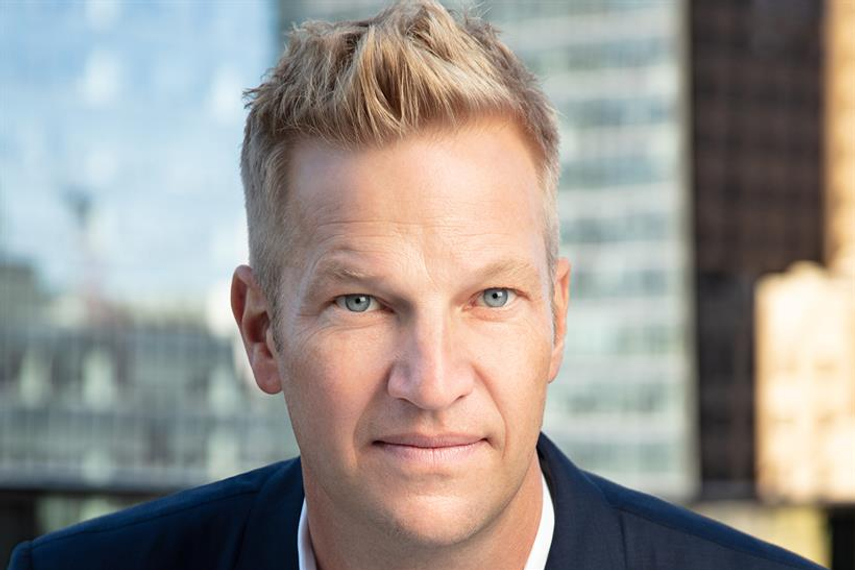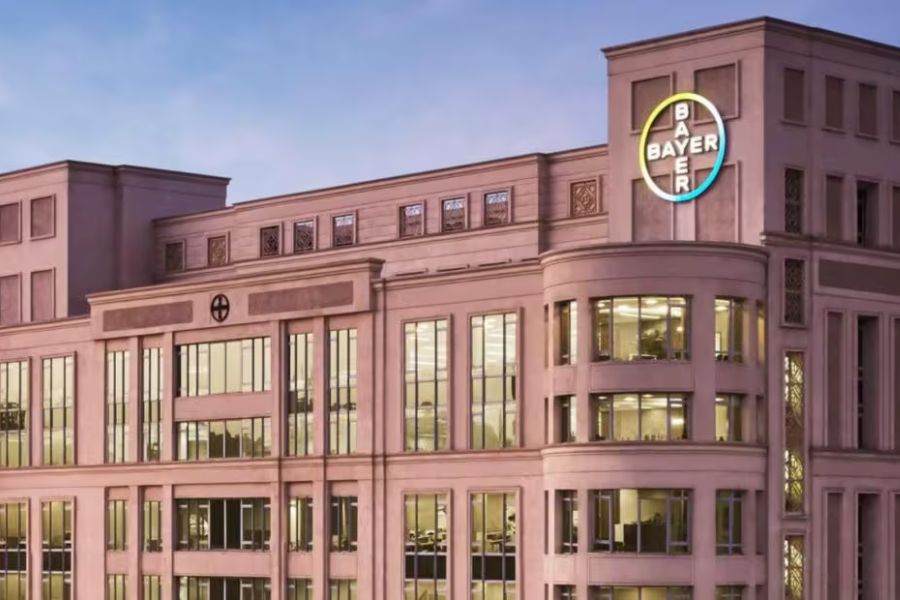The world’s biggest advertising buyer has said it makes sense to merge two of its top agencies, Essence and MediaCom, because “more than anything, clients want a single agency that can handle brand and performance”.
Christian Juhl, the global chief executive of WPP’s Group M, was speaking to Campaign after announcing a major restructure that will also see Mindshare absorb performance agency Neo and the creation of a new activation division, Group M Nexus, to house programmatic arm Xaxis, addressable TV unit Finecast and other digital services.
The strategic ambition is to make Group M’s offer simpler and to drive growth for clients, rather than make savings, according to Juhl, who has been global CEO since October 2019.
He described Group M’s new structure as a pyramid with the three main agencies, EssenceMediacom, Mindshare and Wavemaker at the top, Group M Nexus’s services in the middle and Choreograph, the data arm, at the bottom.
Here is an edited transcript of parts of the interview:
Campaign: This appears to be quite a dramatic series of changes. The attention will be on EssenceMediacom. What’s going on here?
Juhl: We have a five-year strategy for Group M and we outlined that [at the start] two-and-a-half years ago [in 2019] when we talked about simplification, enabling technology, automation, consistency in the way we deliver work, hubs and technology centres deployed around the world. This [restructure] is on track for what our goals, strategy and monetisation are.
While it is a lot of change, we’ve been making change consistently over the past two years. You saw more recently us establish Choreograph as the data and technology centre as the foundation of the business [in April 2021]. We’re [now] announcing Nexus – which is the combination of the technology layer within Xaxis, along with Finecast, along with Group M Services group – to build a 9,000-person performance organisation. And then there’s further simplification at the agency layer [with a move from four networks to three with EssenceMediacom, Mindshare absorbing Neo, and Wavemaker], so they can access those things [the services from Nexus and Choreograph] in a much easier manner.
It really allows us to simplify our model and really enable them [the agencies] – with leading capabilities on a global basis.
Externally, the perception is that both Essence, which you used to run, and MediaCom have been doing well. And yet this merger looks like it must be in some way a defensive move. What’s the rationale?
Both agencies are doing wonderfully well and together they are going to do even better. I can see where maybe you would think it’s a defensive move but the truth is Essence brings digital, creative technology, data-driven performance, product development skills into the equation and MediaCom has global scale, multinational client service and multi-channel audience planning expertise.
Those are two things that [tend to] sit on the other side [from each other in the media agency ecosystem] – clients have had to choose in the past between "I want someone who is small and nimble who is really sophisticated with digital and performance" or "someone who can launch large, multinational campaigns and really think about multi-channel optimisation".
By bringing these two things together, we eliminate the need to choose – we’ve got one agency that has the global scale and capability embedded down with the best digital thinking and performance orientation in the marketplace.
Is it the case that Essence needs help to scale? We appreciate you say the combination with MediaCom will be stronger. But was it going to take Essence, with 2,000 staff, a long time to get to the same kind of scale as the other Group M networks MediaCom, Mindshare and Wavemaker, which are all around four times the size?
There’s no doubt that Essence will benefit from global scale and capabilities and so will its clients. When you start to branch out into multi-channel, the television market and traditional media are still bought relatively locally. The 125 [MediaCom] offices it will be able to tap into will help it [Essence] with big global brands. We think it’s a great time for us and a great opportunity to bring them together.
A lot of the work and process around search, social and programmatic that fits into Nexus was blueprinted in Essence and a lot of the Essence activation people are already in Nexus. One of the key messages to understand in this is that Nexus is almost as a big a beneficiary as EssenceMediacom will be – because a lot of the capabilities are now consistently deployed through Nexus to all of our agencies. We have one way of doing performance, one way of doing analytics, one way of showing campaign performance – a lot of that is blueprinted through the Essence playbook.
We have heard that Essence and MediaCom have already been working together behind the scenes on some clients.
Yes, on the Google business, MediaCom was the agency that Essence partnered with for the media consolidation [in November 2021]. MediaCom does handle the vast majority of the offline for the Google business – so those two teams have already come together in something called the Media Futures Group. That’s a fully integrated team, single P&L, across all the different markets. As well as Google, the two agencies also work on Mars and NBCUniversal.
Has that provided a blueprint for this merger – the fact that you’ve had these large, established teams working on major accounts? And if you’re looking at a broader trend, it’s that clients probably want to work with fewer agency partners – would that also be contributing to bringing those two agencies together?
I think clients, right now, more than anything, want a single agency that can handle brand and performance, single measurement metrics, single optimisation targets and really think about channel fluidity and how to move things to whatever is most efficient.
The problem with being a pure-play digital-only [agency], as much as there’s great growth around it, you can’t address half of the media mix – so you’re always stuck in this hole of having to work across different agencies. And if you’re a client, it’s frustrating.
So, we see clients asking more and more for global consolidation but they still want digital and performance at the centre and they want a single measurement team so they can have the fluidity that they need.
EssenceMediacom will launch in 2023. How will it be rolled out and what did you learn from the Maxus-MEC merger to form Wavemaker in 2017?
The first is to take your time and do it right – we have really got an opportunity to create something unique in the marketplace. We’ve got the building blocks but you’re talking about a 10,000-person organisation at a time when talent is hard to find and people really want to make sure their voices are heard in terms of how you do these things. We have already established multitudes of workstreams – there is somebody from each agency on each one of the workstreams, going through and looking at how they are going to be integrated and developed.
The other thing is just be very clear about what the global organisation model looks like for Group M and make sure they all understand how this fits in, why it makes sense, what the future looks like.
Since I took the job almost three years ago, I’ve been very clear what Group M is, how we operate, how we behave, how we go to market. For many people on the inside, this [restructure] isn’t a huge surprise and they’re looking forward to the future.
Will this merger lead to job cuts?
No, right now I am not seeing anything. We have a lot of open roles, we have a lot of different opportunities for very talented folks. Both agencies were doing incredibly well before this. So, this isn’t any kind of exercise in trying to create synergies on the cost side; it’s really about creating synergies for growth and opportunity for our clients going forward.
Is Mindshare-NEO significant? We thought this merger had already happened.
NEO has been part of Mindshare since 2017 and they’ve been operating together but separately underneath. There’s been some confusion at some points for clients, some artificial barriers that are in there. So removing this altogether and putting it all under Mindshare will be similar to what we are seeing in some of the other areas [in terms of uniting brand and performance].
We will bring some of the Neo operating model – some of the digital-first thinking, there’s a consulting business, there’s some offshore capabilities – into Mindshare more formally and a big infusion of talent. It just removes one of the barriers for further collaboration.

In the restructure announcement, you say: “The future of marketing is outcomes-driven, supported by audience-first planning and continually improving, AI-enabled performance standards.” To what extent does this reorganisation help with that?
We believe outcomes are the way that you should be planning campaigns and the idea of general reach or general frequency or metrics of the past – while some of us and some of our clients are still planning that way – people are interested in moving towards objectives. Those objectives or outcomes can be performance, they can be conversions, they can be brand lift, they can be any variety of things.
That’s what our agencies do – they sit down and work with clients and say, "What is the outcome that we are we going to plan against?" Then you can use machine learning and AI to optimise your media mix across that objective.
And that’s the power of the algorithms and the training of these systems – to optimise much more quickly than our best humans can do. That allows us to get to the right audience faster and to optimise campaigns at a level we haven’t seen before.
The faster we can move into that space, the more advantage we can provide for our clients and more that we can help them grow and deliver against those objectives.
Does becoming more outcomes-focused mean you want to become more like consultants? Do you feel like clients will put a higher value on the services you provide and how you are remunerated?
I sure hope so. We’re seeing big contracts where we are taking risk along with our clients. We’re taking opportunities to benefit when we benefit our clients and we’re taking penalties when we don’t. And I think the clients are saying, more and more, how do you tie your success to ours?
You told Campaign at the end of 2020: “Five years from now, if I am successful Group M will look more like a software company than it will a media agency.” Is that still the journey you’re on?
[We’re] 100% committed to that journey. If you look at attributes of a software company: simple ways of working – we’ve established that. Thinking about "dot-type" releases [for software upgrades] – we’re doing that. Thinking about common platforming and offshore – we’ve already accomplished that.
I feel really good about where our progress is right now. We’ll continue to increase the amount of technology that will be deployed on campaigns and use AI and machine learning to optimise campaigns.
Going back to Essence and MediaCom, how confident are you about the cultures meshing together and working? Some observers and people who have worked there at Group M previously have said the agency cultures are quite different and often quite competitive across the whole group. Do you think that’s an issue?
Each agency is different but I feel comfortable with where we’re at with this. They have already been working together on the largest clients. I have a lot of confidence, launching the Google process [jointly with Essence and MediaCom last year], seeing how they have worked on NBCU for years.
Our people unify around clients and making their clients successful and I’ve never seen two organisations more dedicated to their clients’ success than Essence and MediaCom. They’ve already got a really integrated management team already planned [with similar representation from both agencies]. Nick Lawson [the global chief executive of MediaCom who takes the same role at EssenceMediacom] will announce that.
Kyoko Matsushita [the global CEO of Essence] is going to do an amazing job for us running WPP Japan and helping us stay engaged with our business across APAC, which is our number one growth region.
I think people are going to rally round their clients to be successful and I think everybody is going to have a lot of fun with the new capabilities that the organisation is going to bring. For Essence, there’s a ton of mobility across these different [international] markets and probably it will be easier to work because you’ve got local teams. For MediaCom, you’re getting a whole new toolkit, to go and think about measurement and performance, to get into systems like Olive [Essence’s campaign management platform] that they’ve use pieces of in the past but not really rolled it out across everything.
Any shortening of the name – like EM?
There’s nothing planned. EssenceMediacom gets easier the more you say it.
In some ways, this restructure sounds radical yet there’s no mention of the role of creative or working with creative agencies.
Last year, we announced ACP – our addressable content partnership with [WPP production company] Hogarth. That really picks up on platform-based creative that allows us to extend that into global campaigns. We partner with all the creative agencies [in WPP and elsewhere] on the front end around ideation, thinking about how we want to pull the campaigns together. In addition to that, we have creative thinkers within our organisation. Essence has a creative production team, MediaCom probably has our second largest creative production team [in Group M]. Those agencies do develop creative for key clients.
I am more interested probably in what "the universal brief" looks like [offering a fully integrated service across for clients]. Once we can get into using data and technology in a privacy-compliant way to understand whatever subset of people we’ll be talking to, and once we define these audience types and objectives we will have against them, [then it’s] back to outcomes. The creative teams and media teams can sit together and talk about what message you’re going to deliver within what context.
I think that’s an exciting future and WPP has all the capabilities within our organisation to deliver that. Group M doesn’t necessarily have to build the whole thing – we’ve got great partners in VMLY&R, Wunderman, AKQA, across the board. When you see big [integrated] pitches like Coke [which WPP won], that’s part of the story – how do we bring together our creative teams, our media teams, to deliver against the ambition of The Coca-Cola Company?
One final thing on EssenceMediacom – beyond jobs, are there any other savings such as office space that are coming from this?
We’re doing this for growth, not for savings. We just think the opportunity is right in front of us to create this unique organisation where clients don’t have to sacrifice – they get all the benefits of performance and technology capability [in Essence] matched with one of the largest globally scaled multi-channel planning organisations in the world [in MediaCom].
It’s a unique agency and [as a client] you don’t have to pick some small [digital or performance marketing] boutique somewhere and force it into your portfolio, and I think that’s going to be really successful for us and for our clients.
(This article first appeared on CampaignLive.co.uk)




